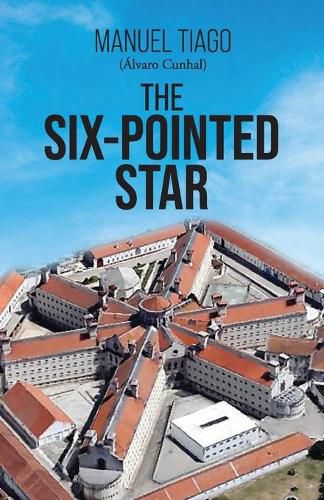Readings Newsletter
Become a Readings Member to make your shopping experience even easier.
Sign in or sign up for free!
You’re not far away from qualifying for FREE standard shipping within Australia
You’ve qualified for FREE standard shipping within Australia
The cart is loading…






This title is printed to order. This book may have been self-published. If so, we cannot guarantee the quality of the content. In the main most books will have gone through the editing process however some may not. We therefore suggest that you be aware of this before ordering this book. If in doubt check either the author or publisher’s details as we are unable to accept any returns unless they are faulty. Please contact us if you have any questions.
Manuel Tiago derived much of his material for this book about prison life from the years he spent in detention for his political views during the era of Portuguese fascism. There are three political prisoners in this novelistic memoire, but mostly we meet men convicted for other types of crimes, many of them violent. But in a backward, repressive society, is stealing food for the poor or trying to demand justice for your fellow workers truly a crime?
Many writers have applied their gritty realism to the subject of prison, again, some from personal experience. The Six-Pointed Star, now available to an English-language readership, joins the select company of great books on this theme.
The author opens and closes his account on the outside of the prison. On almost every page, he tells stories, some tragic, some even with elements of humor, showing that life on the inside mirrors that on the outside. All the human qualities, both positive and negative, that we see there, we also see here.
In this composite tapestry of a place, a time, and a shifting population of 500 men, almost any reader will be able to identify moments in their own lives when they were just this far away from committing a crime, or wanting to, and ending up as these men did. However many reasons there may be why people commit crimes, even heinous ones, prison does not cancel a person’s humanity. That may be in itself the single most important message this book communicates.
$9.00 standard shipping within Australia
FREE standard shipping within Australia for orders over $100.00
Express & International shipping calculated at checkout
This title is printed to order. This book may have been self-published. If so, we cannot guarantee the quality of the content. In the main most books will have gone through the editing process however some may not. We therefore suggest that you be aware of this before ordering this book. If in doubt check either the author or publisher’s details as we are unable to accept any returns unless they are faulty. Please contact us if you have any questions.
Manuel Tiago derived much of his material for this book about prison life from the years he spent in detention for his political views during the era of Portuguese fascism. There are three political prisoners in this novelistic memoire, but mostly we meet men convicted for other types of crimes, many of them violent. But in a backward, repressive society, is stealing food for the poor or trying to demand justice for your fellow workers truly a crime?
Many writers have applied their gritty realism to the subject of prison, again, some from personal experience. The Six-Pointed Star, now available to an English-language readership, joins the select company of great books on this theme.
The author opens and closes his account on the outside of the prison. On almost every page, he tells stories, some tragic, some even with elements of humor, showing that life on the inside mirrors that on the outside. All the human qualities, both positive and negative, that we see there, we also see here.
In this composite tapestry of a place, a time, and a shifting population of 500 men, almost any reader will be able to identify moments in their own lives when they were just this far away from committing a crime, or wanting to, and ending up as these men did. However many reasons there may be why people commit crimes, even heinous ones, prison does not cancel a person’s humanity. That may be in itself the single most important message this book communicates.